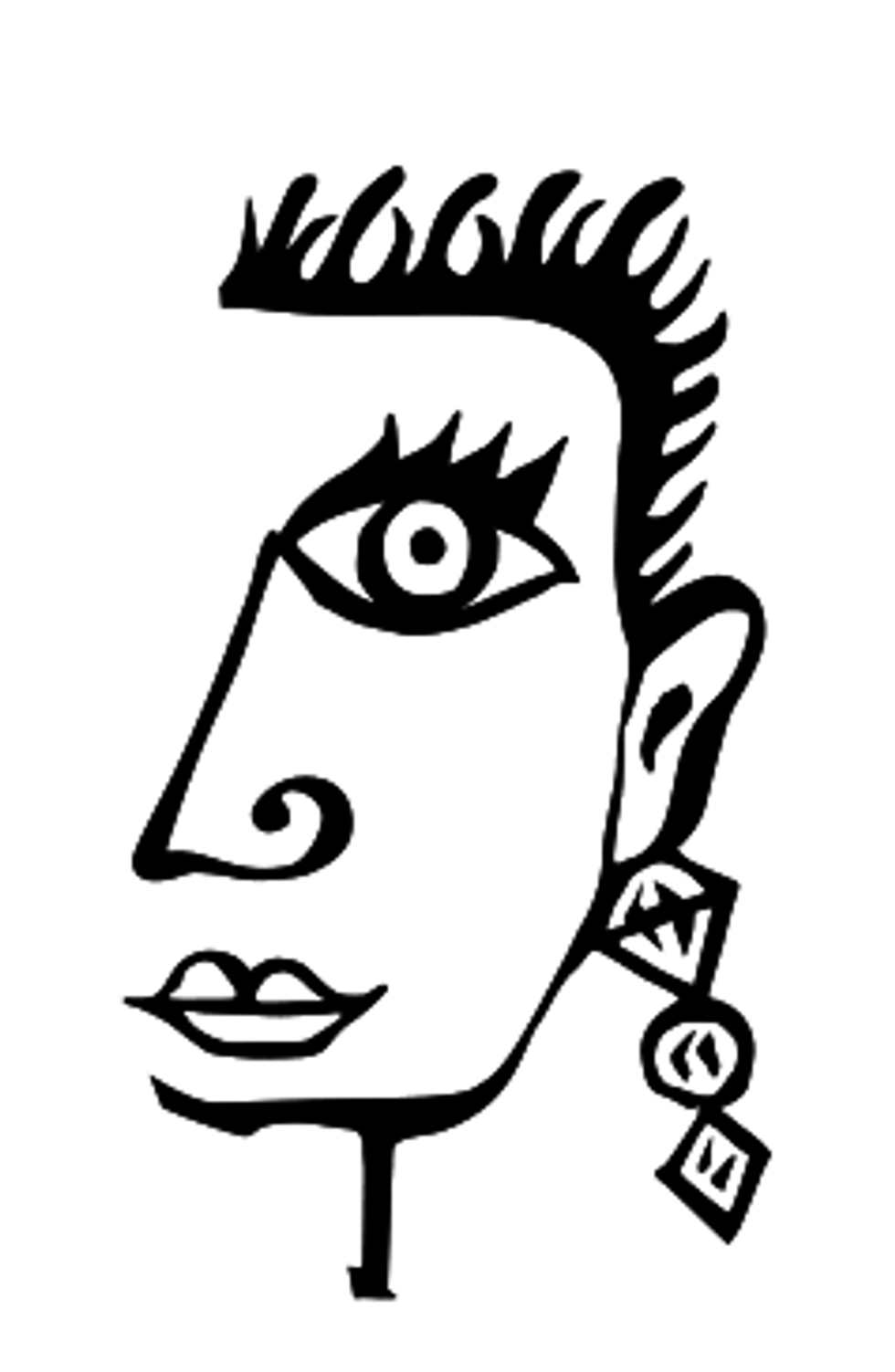| Well, it’s our first column of the year. A new beginning. Any “new” ideas for topics? Something other than New Year’s resolutions. |
| Is there a reason you do not want to talk about resolutions? |
| Obviously, yours was not to ask fewer questions. |
| That will never happen, but you are avoiding the question. Why? |
| Because every year, I have a long list of things I want to do, and I start strong, but within a few months, I fall back into old habits. Sometimes it only takes weeks. It’s frustrating and disappointing. |
| Next question. What is the opposite of “old?" |
| I want to say, “New,” but this is clearly one of your trick questions. |
| ”New” would technically be correct … but, so is “current.” Most people think of resolutions as total overhauls, which has never made sense to me. Instead of major change, which is rarely a realistic goal, why not focus on improving and doing things better? |
| Now that’s an interesting thought, especially as Sawyer said to me, mere minutes into the new year, that one of her resolutions was to build on last year’s goals at the gym. So, for me, instead of using that dreaded word “diet,” I could just focus on eating better. |
| “Dieting” is focused on weight loss, but eating better is about healthy choices. It may sound like a nuance, but it is a different mindset. |
| All I know is phrasing it that way already takes the pressure off. And since I love fruit and salads, it’d be easier to think about using them as substitutes vs. trying to give up the “bad stuff”. |
| Exactly. Keep what you are doing that is good and get rid of – or at least reduce – what is not so good. |
| I find it interesting that you said “not so good” instead of “bad.” I
like that. It puts the focus on the good. Which is a good
idea! Pun intended. |
| And, that applies to everything … not just eating habits. |
| Well, it’s too bad that everyone doesn’t focus on the good. There’s so much negativity everywhere. You turn on the news, and that’s all you hear. You pick up the newspaper, and that’s all you see. And to make matters worse, I often feel like the media’s stirring the pot. |
| Good thing you are not on social media. It is even worse there. |
| I’d like to think people want good news, but I feel like you have to
search for those stories. For example, I get CNN headlines on my phone,
and there’s usually one or two “feel good” stories, but they’re typically buried
at the bottom. |
| Without boring you with studies and statistics, although people say they prefer stories with a “positive” message, they are drawn to “negative” stories. And, since the news media is big business, it gives audiences what they want. Maybe you should change your newsfeed to Axios, as I find its stories are not only factual, but have a human element as they explain “why” the information is important. Regardless, nothing requires you to keep up with all the news. |
| Usually it’s just background noise while I’m doing other things. But when Mom passed in mid-December, I stopped watching the news and have barely looked at the headlines on my phone. It started with me feeling like I didn’t need to hear anything negative going on in the world while I was dealing with my grief. And then I decided I didn’t miss all the negative news and preferred to focus on positive things. |
| Imagine if everyone took that same approach. Focusing on positive things, not negative. The difference it could make – not only to us individually but to society as a whole. |
| Do you think, in today’s world where people are so quick to criticize and find the negative, that’s even possible? |
| You tell me. After “divorcing” yourself from the news, have you noticed any change in your behavior toward others? |
| Yes, but it also might be because Mom’s passing has made me overly sensitive. However, I’ve found myself having more patience with other people. Places where I sometimes can be impatient – the grocery store, the gas station, etc. |
| You get impatient with people? So, you are not always warm and fuzzy? |
| Very funny. But if you’ll let me
finish ... instead of ignoring people and/or muttering to myself that they
were in my way or moving slowly or whatever, I’ve been giving people more “time”.
I make a point of trying to smile or
making a friendly comment. And almost everyone
has responded in a positive way. |
| Kindness can be contagious. So, maybe you should add that to your list of New Year’s resolutions. As I already said, resolutions do not have to be major overhauls, they are about improving and doing things better. |
| So, what do you plan to do better in the New Year? Work on your sarcasm, perhaps? |
| Actually, I have been told I already do that well. But, I guess there is always room for improvement … |
Want to read other columns? Here's a list.
Dry January Has Nothing To Do With Weather. Neither Does Dry Dating.
When we first ran the post below, Red had never heard of “Dry January” (or “Damp January"), so Black wasn't surprised that she hadn't heard of a new phenomenon (especially with younger people) called "Dry Dating" (aka "Sober Dating"). The idea is to go on dates and see if there's chemistry when both people are fully themselves — no “liquid courage” allowed. And January’s the perfect month to test-drive it ...
| I keep getting emails about where to go for mocktails. I know alcohol-free cocktails, like Virgin Margaritas, have been around for a while, but I’d never heard that term before. Do you think it has to do with New Year’s resolutions? |
| It can if any of your resolutions are to loseweight, save money, sleep better. Or, drink less. Psychologically, January is the month when we “reset”, so a UK-based organization, Alcohol Change UK, started DryJanuary, where you abstain from drinking alcohol. |
| Perfect timing since many people shop, eat, and drink more than usual over the holidays. |
| I know you used to drink a glass of ColdDuck on New Year’s Eve, a tradition going back to our childhood, but that hardly counts as drinking. But, I have always wondered why you rarely drink, but never asked. |
| That may be the only thing you haven’t asked me. It isn’t for any moral or health reasons; it’s because, even many decades later, I still have vivid memories of overdoing it at a fraternity dance at college. Although lately, I’ve been drinking more than normal. |
| For you, that means more than one drink … a year. |
| Very funny, but pretty much true. However, after visiting Tennessee Hills Distillery in the fall, I did develop a taste for their flavored rum. So, between the ones I brought home and the bottles of Moscato that Natasha had delivered to me by Drizly as a surprise holiday gift, I’ve had more to drink this holiday season than ever before. |
| Well, I drank more this year, too. But, that is because, during COVID, I went over a year without a drink. For years, I used to go out to dinner several times a week and would always have a drink or two, but now do not go out as often. Combine that with a lack of dating, and myalcohol consumption is almost non-existent. |
| But your condo has a pantry that you converted into a beautiful bar with all those liquor bottles on display. And you’ve collected wine for years. |
| Yes, it looks enticing, but I do not drink alone. Never have. But, if I did, I would probably need to hide the liquor, or put yellow “caution tape” in front of the bar during Dry January. |
| That’s funny, but do you really think that people can go cold turkey for an entire month? That seems like a long time if you’re used to drinking on a regular basis. |
| Yes. Besides the fact many bars are taking advantage of Dry January to offer customers something new and different versus just alcohol-free versions of traditional cocktails, the demand for nonalcoholic beverages continues to increase as more people prioritize healthier lifestyles. Not to mention, many people now feel less social pressure to drink. |
| Please don’t start quoting statistics and studies! But don’t you think, come February, everyone will just go back to their “normal” habits? |
| Since you do not want me to mention any of the science, or the fact people are already drinking less, I will come at it another way. If once you start Dry January, you experience the health benefits, including more energy, why would you go back to your old habits? |
| Because it’s a habit? Sorry, I couldn’t resist. But good points, especially as we all know drinking can lead to health problems. Not to mention the risks of driving under the influence of alcohol. But I’d think there’s still some peer pressure to drink socially. |
| As more people are trying Dry January, or at least are aware of it, the more acceptable it becomes. And, the easier it is to find others to support you. Although sometimes you may need to avoid those people who do not. |
| Well, I’ve seen you drink this month. And you can’t blame it on me! What’s your excuse? |
| Dry January is not about having a perfect score. It is about reevaluating your relationship with alcohol. And, taking a night off does not mean the end of the effort. It just means it may be a Damp January. |
They may not be the most meaningful holidays, but they may be some of the most fun, so we’re rerunning this post. Of course, Red thinks popcorn is nothing to be taken lightly, since it gives her such happiness. But even Black has favorites (scroll to the bottom). What would be yours?
| It’s January, and everyone’s probably tired of reading about New Year’s resolutions. |
| Not me. Since I never make them, I never feel the need to read about them. |
| Of course, you don’t. So, what should we write about? |
| How about that we celebrate some of our favorite things in January? |
So many “National Days” in January are fun (we’ve written about them over the years) and remind us of some of our favorite things. (Can you pick which are Red’s favorite holidays and which are Black’s?) And whether or not you make resolutions, it’s always important to have a sense of humor and enjoy the simpler things in life …
- NATIONAL CLEAN YOUR DESK DAY: Resolutions Aside … A Clean Desk? Is That Even Possible???
- NATIONAL BAGEL DAY: Not A Trick Question ... Who Doesn’t Love Bagels?
- NATIONAL POPCORN DAY: Do People Really “Celebrate” Popcorn? Red Does!
- NATIONAL HUGGING DAY: Think Before … Hugging?!
- NATIONAL BACKWARD DAY: Celebrating Having Fun … And Success … By Being Backward?
Answer: Red’s favorites are Bagels, Popcorn, and Hugging. Black’s are Clean Desk, Bagels, and Backward.
 red head
assets.rebelmouse.io
red head
assets.rebelmouse.io
 Black
assets.rebelmouse.io
Black
assets.rebelmouse.io
 assets.rebelmouse.io
assets.rebelmouse.io
 Red
assets.rebelmouse.io
Red
assets.rebelmouse.io
 Blackassets.rebelmouse.io
Blackassets.rebelmouse.io